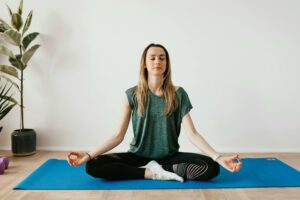For those that do not have sleep issues, sleep is simply a daily occurrence that probably does not take up much active brain space, like breathing or blinking.
However, for those that struggle with their sleep, the nightly task can seem perpetually just out of reach, creating immense anxiety and worry for what will happen (or not happen) each night.
“Falling to sleep” is outside of our conscious control; you cannot force yourself to do it. However, there are a lot of steps you can take to increase your body’s readiness to sleep.
The following are research-backed tips that have been shown to improve the quality of sleep in a statistically significant portion of subjects who have used them. This does not mean these will all work for you, nor will you likely need to do all of them to improve your sleep. But if you or someone you know does struggle with sleep at times, experimenting with various combinations of these tactics would be a wonderful path to start on.
Keep what helps, ditch what doesn’t and keep experimenting. 🙏
- Wake up at the same time each day and go to sleep when you first start to feel sleepy. Pushing through the sleepy late evening feeling and going to sleep too late (for you) can impact the quality of your sleep and cause you to wake up in the middle of the night.
- View sunlight by going outside within 30-60 minutes of waking. Do that again in the late afternoon, prior to sunset. Sun in your face at these times helps set your circadian rhythm and has been shown to help calibrate the hormones necessary for good sleep. Don’t wear sunglasses for this practice if you safely can, but also don’t look directly into the sun or any bright light!
- Avoid caffeine within 8-10 hours of bedtime (or 12-14 hours for some!). Monitor this closely to determine what you are affected by. Studies indicate nearly everyone is affected at some level by caffeine within 8-10 hours of sleep.
- Avoid viewing bright lights and screens between 10 pm and 4 am. Only use as much artificial lighting as is necessary for you to remain and move about safely at night. Dim the lights at night to give your brain more signals that it’s time to wind down.
- Limit daytime naps to less than 90 min, or don’t nap at all. Ideally nap for 20-40 min to increase focus, but not disrupt night time sleep.
- Expect to feel really alert ~1 hour before your natural bedtime. This is a naturally occurring spike in wakefulness that sleep researchers have observed. Don’t freak out if it happens. It will pass!
- If you cannot fall asleep within 20 min of trying OR you wake up and are unable to fall back asleep within 20 min, change your environment. Go to another room, slowly and quietly, keeping the lights as low as safely possible. Do something calming/boring – read a book, or search for ”NSDR” or “Yoga Nidra” options on Youtube for some guided meditations. Look at the screen as little as possible. When you start to feel drowsy at all, go back to the bedroom and try to sleep again for 20 min max. Repeat as needed.
- Keep the room you sleep in cool and dark and layer on blankets that you can remove. Your body needs to drop in temperature by 1-3 degrees to fall and stay asleep effectively.
- Drinking alcohol, using cannabis and most sleep medications disturb the quality of your sleep. Try to avoid when possible, particularly within 6 hours of sleep.
- Kids (and indeed all of us) have changing sleep needs over time. We might be night owls at 15 but become “morning people” as we age or need 6-8 hours a night in summer and 7-9 in winter. It will vary, so pay attention to your needs and adjust as needed.
Remember that no one is perfect about sleep. The occasional night out or missing sunlight viewing here & there is not a big deal, so don’t obsess about it.
However, if any of us drift from these & the other behaviors for too long, we start to suffer. The vast majority of the people I have worked with have been able to improve their sleep dramatically with a combination of the above behavior changes, acupuncture and herbs, so stick with it!







